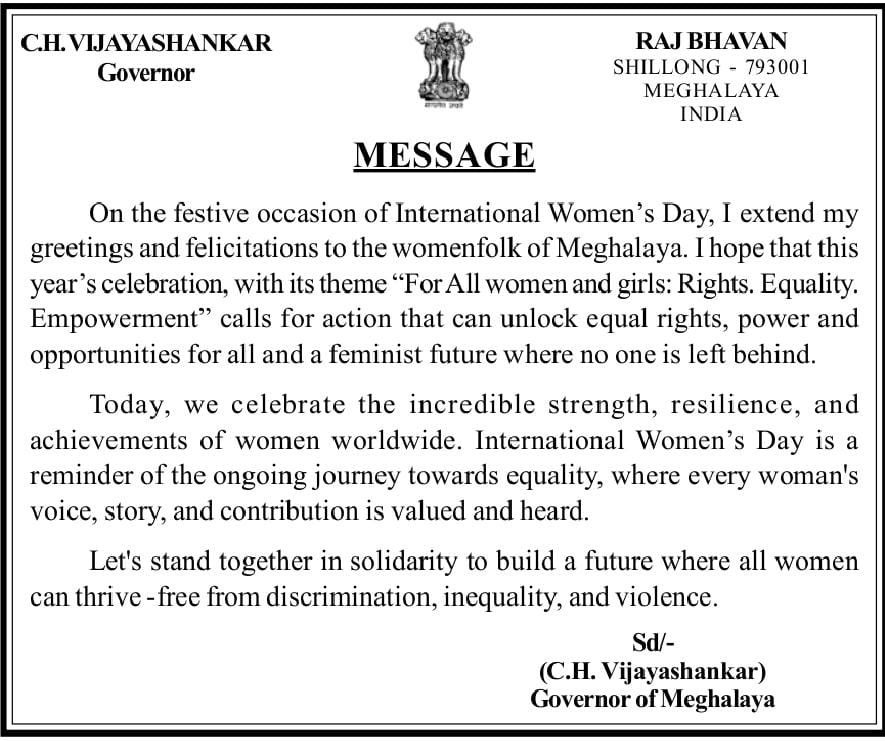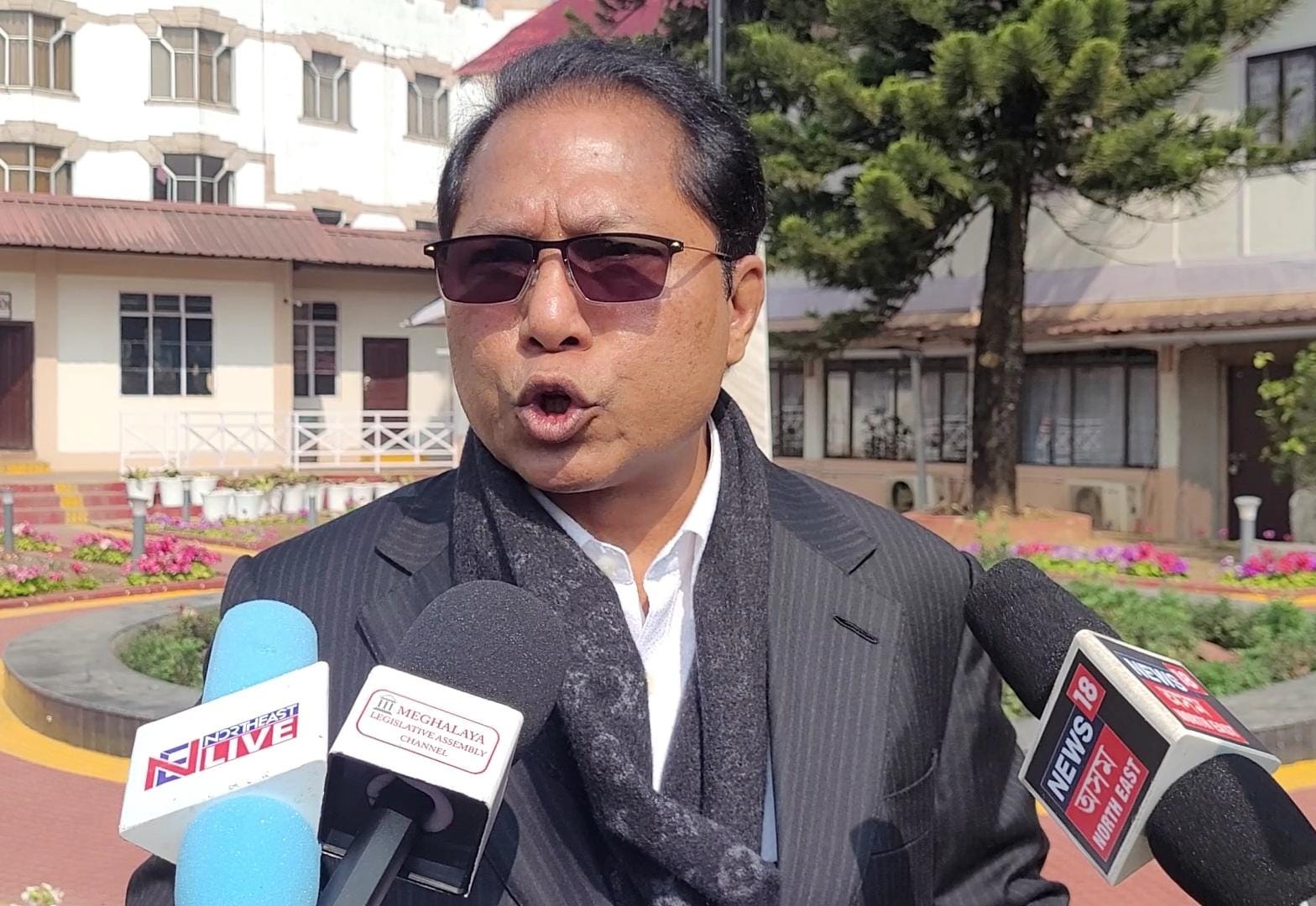Meghalaya’s Leader of Opposition, Dr. Mukul Sangma, has launched a scathing attack on the state government, accusing it of enabling illegal coal mining despite judicial directives. He alleged that authorities, including the Chief Secretary and the Director General of Police, have failed in their duty to enforce the National Green Tribunal’s (NGT) ban, allowing large-scale violations to persist.
It may be mentioned that Justice (Retd) BP Katakey, head of the single-member committee constituted by the Meghalaya High Court , recently has confirmed that coal is being illegally mined and transported in the South Garo Hills district. He disclosed receiving seven complaints about illegal mining and coal transportation, primarily from South Garo Hills and West Khasi Hills. While acknowledging government cooperation, Justice Katakey noted delays in implementing some of his recommendations.
Sangma also raised concerns over the delayed transportation of coal inventories declared before the Supreme Court in 2019, questioning how a stock initially estimated at two lakh metric tons suddenly inflated to over 30 lakh metric tons. Asserting that the ongoing irregularities point to complicity at multiple levels—including within Coal India—he demanded immediate action to end what he described as a deliberate facilitation of illegal coal mining in Meghalaya.
“The NGT is also duty-bound. The onus of responsibility is also with the NGT. They have to pull up the officers concerned, they have to pull up the Chief Secretary, they have to pull up the DGP,” Sangma asserted.
Referring to the initial order of the National Green Tribunal (NGT) banning illegal coal mining, he stated, “If you go by the first order of the NGT—stopping or banning all the coal mining activities which are considered illegal due to the fact that they were not consistent with various statutory laws, including the MMDR Act and environmental laws—then the onus of responsibility of implementing the order is vested first with the Chief Secretary and the DGP. Let us be very, very clear. This whole thing is vested upon the government of the day because if they are not taking cognizance of these illegalities, I have reasons to believe that there is complicity allowing illegalities to happen. For whose interest? Are they not paid? Is there anybody else who will take this responsibility?”
Sangma also pointed fingers at Coal India, questioning the prolonged delay in clearing extracted coal inventories. “What is the duration of time needed for taking all the measures to ensure that all those coal which were declared in their inventory at the time of submitting before the Supreme Court—reflected in the judgment of July 3, 2019—are cleared? It is very clear that the responsibilities are vested upon a few authorities, including Coal India and the state government. How does it take so much time? 2019—this is 2025. How does it take so much time for this coal to be transported?”
He alleged that the process is being deliberately delayed to facilitate illegal coal mining. “If you do not believe, go and see the coal—2019 coal and now. We all know chemistry and physics. What happens when extracted coal is dumped in the open, subjected to rain and sun? How will the physical appearance of the coal be?”
Sangma further criticized the authorities for failing to act despite repeated reports from the Katakey Committee. “Section 21 of the MMDR Act, 1957, makes it binding on the part of the government to take any issue of illegal coal mining cognizable. This is a cognizable offense. So when we say this is a cognizable offense, that means the government or the authorities concerned must take cognizance of any such illegalities.”
He also pointed to recent Enforcement Directorate (ED) raids related to coke plants in Meghalaya, arguing that such operations indicate large-scale illegality. “If there are illegalities revolving around coke plants in Meghalaya, that means the authorities concerned in the respective districts must take cognizance, and the government must take action. In the absence of that, we have reasons to believe that illegality of this scale, in a small state like Meghalaya, cannot happen without the patronage of the authorities concerned.”
Dismissing any claims of ignorance by the administration, he said, “You have accessibility to all coal mining areas. You have beautiful roads, connecting roads from Shillong to Nongstoin through Shallang—the coal-bearing areas. Do you have a problem with accessibility? No, you don’t. So there cannot be any excuse for the authorities that they do not know what is happening.”
Calling for immediate government intervention, Sangma stated, “This is not a blame game. I urge the authorities and the government of the day to fulfill their responsibility in sync with the laid-down rules, laws, and constitutional requirements to protect the interest of the state. Stopping illegal coal mining and transportation of illegally extracted coal is to protect the interest of the state and the people.”
He further argued that the state’s failure to regulate coal mining has crippled vital institutions like the Garo Hills Autonomous District Council (GHADC). “Today, our GHADC is not able to pay salaries for its employees. That means the complete functioning of the GHADC is as bad as crippled. What is going to happen if this insensitivity of the government results in the complete collapse of this important institution, which is mandated by the Constitution to protect the interests of our indigenous people?”
Sangma concluded with a direct challenge to the government. “As I have said, in respect of coal mining, let us be specific—it is a cognizable offense. The government must take cognizance of this whole illegality and put an end to it. Failure to do that amounts to complicity in facilitating these illegalities. It’s as simple as that.”


